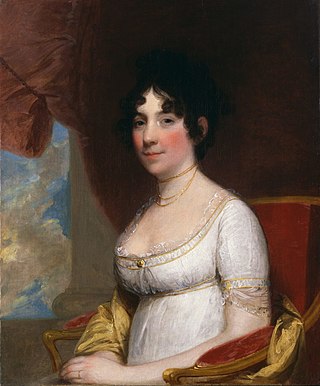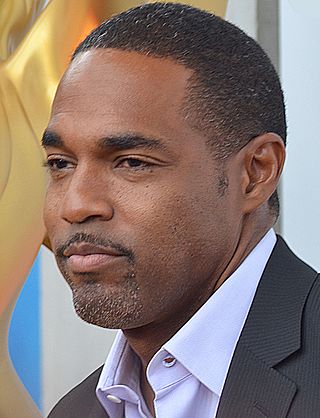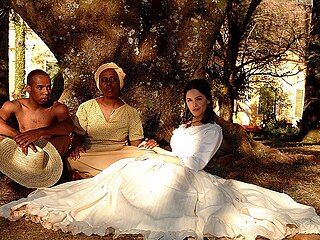
Uncle Tom's Cabin; or, Life Among the Lowly is an anti-slavery novel by American author Harriet Beecher Stowe. Published in two volumes in 1852, the novel had a profound effect on attitudes toward African Americans and slavery in the U.S., and is said to have "helped lay the groundwork for the [American] Civil War".

Dolley Todd Madison was the wife of James Madison, the fourth president of the United States from 1809 to 1817. She was noted for holding Washington social functions in which she invited members of both political parties, essentially spearheading the concept of bipartisan cooperation. Previously, founders such as Thomas Jefferson would only meet with members of one party at a time, and politics could often be a violent affair resulting in physical altercations and even duels. Madison helped to create the idea that members of each party could amicably socialize, network, and negotiate with each other without violence. By innovating political institutions as the wife of James Madison, Dolley Madison did much to define the role of the President's spouse, known only much later by the title First Lady—a function she had sometimes performed earlier for the widowed Thomas Jefferson.

Rita Frances Dove is an American poet and essayist. From 1993 to 1995, she served as Poet Laureate Consultant in Poetry to the Library of Congress. She is the first African American to have been appointed since the position was created by an act of Congress in 1986 from the previous "consultant in poetry" position (1937–86). Dove also received an appointment as "special consultant in poetry" for the Library of Congress's bicentennial year from 1999 to 2000. Dove is the second African American to receive the Pulitzer Prize for Poetry, in 1987, and she served as the Poet Laureate of Virginia from 2004 to 2006. Since 1989, she has been teaching at the University of Virginia in Charlottesville, where she held the chair of Commonwealth Professor of English from 1993 to 2020; as of 2020, she holds the chair of Henry Hoyns Professor of Creative Writing.
The Wicked Witch of the West, a fictional character in the classic children's novel The Wonderful Wizard of Oz (1900) by the American author L. Frank Baum, is the evil ruler of the Winkie Country, the western region in the Land of Oz. She is inadvertently killed by the child Dorothy Gale. In Baum's subsequent Oz novels, the Wicked Witch of the West is occasionally referred to.

She Loves Me is a musical with a book by Joe Masteroff, music by Jerry Bock, and lyrics by Sheldon Harnick.

A mammy is a U.S. historical stereotype depicting Black women, usually enslaved, who did domestic work, among nursing children. The fictionalized mammy character is often visualized as a dark-skinned woman with a motherly personality. The origin of the mammy figure stereotype is rooted in the history of slavery in the United States, as enslaved women were often tasked with domestic and childcare work in American slave-holding households. The mammy caricature was used to create a narrative of Black women being content within the institution of slavery among domestic servitude. The mammy stereotype associates Black women with domestic roles, and it has been argued that it, alongside segregation and discrimination, limited job opportunities for Black women during the Jim Crow era.

The Feast of All Saints is a historical novel by American author Anne Rice published in 1979 by Simon & Schuster.
Lake Hiawatha is an unincorporated community and census-designated place (CDP) located within Parsippany–Troy Hills Township in Morris County, in the U.S. state of New Jersey. The U.S. Postal Service serves the community as ZIP Code 07034. As of the 2020 census, the population was 10,194.

The White Witch is a legendary story of a haunting in Jamaica. According to the legend, the spirit of a white plantation owner named Annie Palmer haunts the grounds of Rose Hall, Montego Bay.

Jason Winston George is an American actor. He is best known for his roles as Michael Bourne on the NBC daytime soap opera Sunset Beach, as Jeremiah Thurgood "J.T." Hunter on the UPN television sitcom Eve, as Dr. Otis Cole on ABC's Off the Map, and as Dr. Ben Warren on Grey's Anatomy and its spinoff Station 19.
Living in a wide range of circumstances and possessing the intersecting identity of both black and female, enslaved women of African descent had nuanced experiences of slavery. Historian Deborah Gray White explains that "the uniqueness of the African-American female's situation is that she stands at the crossroads of two of the most well-developed ideologies in America, that regarding women and that regarding the Negro." Beginning as early on in enslavement as the voyage on the Middle Passage, enslaved women received different treatment due to their gender. In regard to physical labor and hardship, enslaved women received similar treatment to their male counterparts, but they also frequently experienced sexual abuse at the hand of their enslavers who used stereotypes of black women's hypersexuality as justification.

The Bondwoman's Narrative is a novel by Hannah Crafts whose plot revolves around an escape from slavery in North Carolina. The manuscript was not authenticated and properly published until 2002. Scholars believe that the novel was written between 1853 and 1861. It is one of the first novels by an African-American woman, another is the novel Our Nig by Harriet Wilson, published in 1859, while an autobiography from the same time period is Incidents in the Life of a Slave Girl by Harriet Jacobs, published in 1861.
The Fountain Theatre is a theatre in Los Angeles. Along with its programming of live theatre, it's also the foremost producer of flamenco on the West Coast.

A Escrava Isaura is a 2004 Brazilian telenovela based on A Escrava Isaura, an 1875 abolitionist romance novel by Bernardo Guimarães. The series tells the story of a coffee-plantation owner's passion for one of his slaves. Herval Rossano directed both this and the 1976 version.
Francisca da Silva de Oliveira, known in history by the name Chica da Silva and whose romanticized version/character is also known by the spelling Xica da Silva, was a Brazilian woman who became famous for becoming rich and powerful despite having been born into slavery. Her life has been a source of inspiration for many works in television, films, music, theater and literature. She is popularly known as the slave who became a queen. The myth of Chica da Silva is often conflated with the historical accounts of Francisca da Silva de Oliveira.
Teresa Gallagher is an American-born British voice actress.
The Benjamin January mysteries is a series of historical murder mystery novels by Barbara Hambly. The series is named after the main character of the books.

A Visit from the Old Mistress is an 1876 painting by the American artist Winslow Homer. It was one of several works that Homer is thought to have created during a mid-1870s visit to Virginia, where he had served for a time as a Union war correspondent during the American Civil War. Scholars have noted that the painting's composition is taken from Homer's earlier painting Prisoners from the Front, which depicts a group of captive Confederate soldiers defiantly regarding a Union officer. Put on display in the northern states for a northern audience, A Visit from the Old Mistress, along with Homer's other paintings of black southern life from the Reconstruction era, has been praised as an "invaluable record of an important segment of life in Virginia during the Reconstruction."

Patsey was an African American enslaved woman. Solomon Northup wrote about her in his book Twelve Years a Slave, which is the source for most of the information known about her. There have been two adaptations of the book in film: Solomon Northup's Odyssey (1984), and the better known 12 Years a Slave (2013). In the latter, Patsey was portrayed by Lupita Nyong'o, who won the Academy Award for Best Supporting Actress for her performance.

A shadow family was an unacknowledged child or children created by a white male slave owner with a female black slave. Often they lived in physical proximity to their father, and a "married maverick reared a white family in the front of the house even as he reared a mulatto family in the back."












